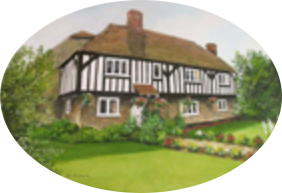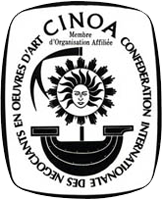George III Silver Vinaigrette Demeter and Dionysus
MATTHEW LINWOOD of birmingham 1808
Photo 1 of 12
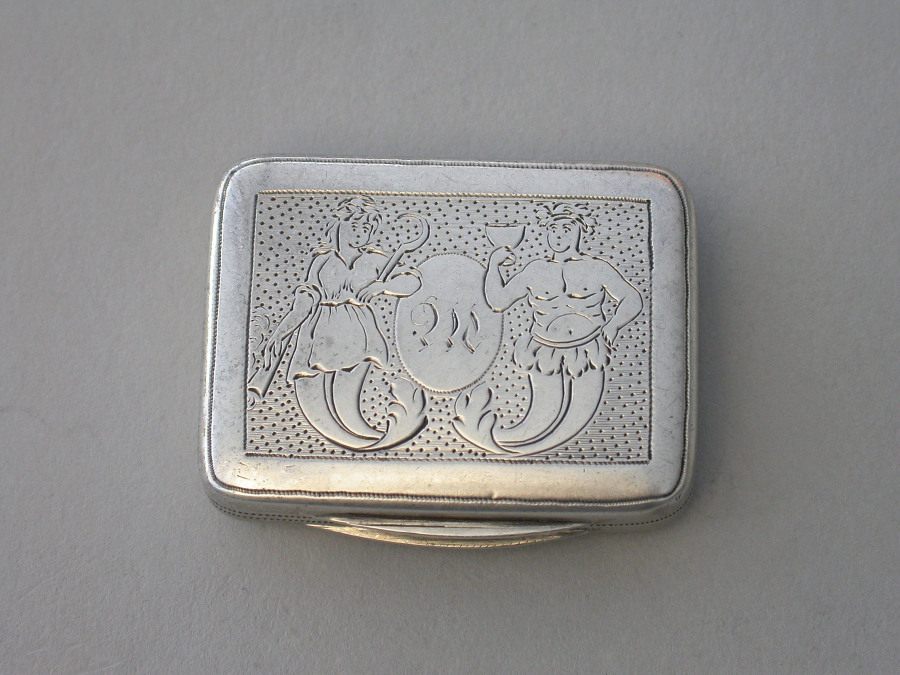
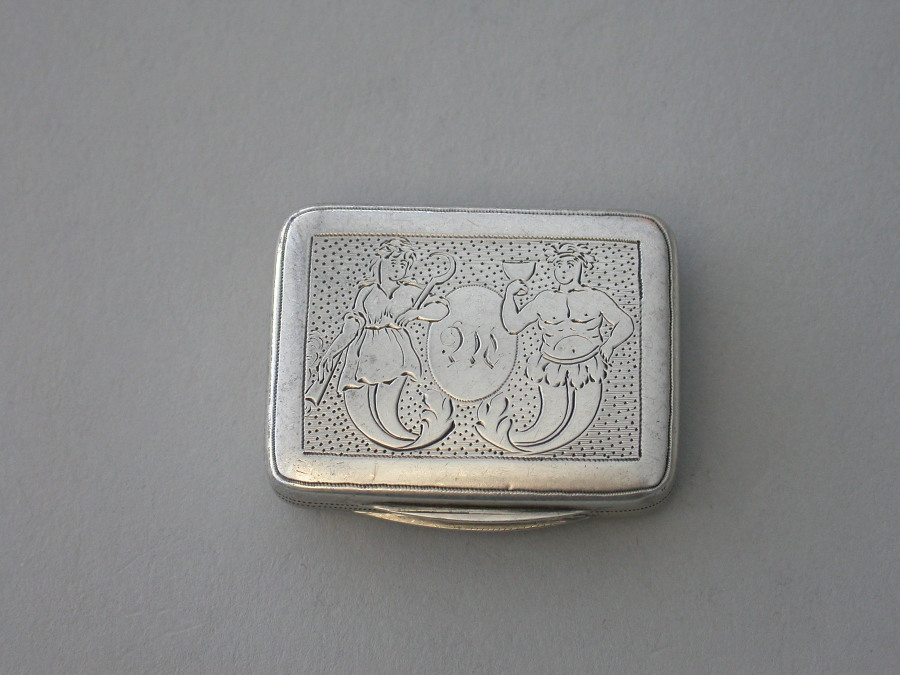
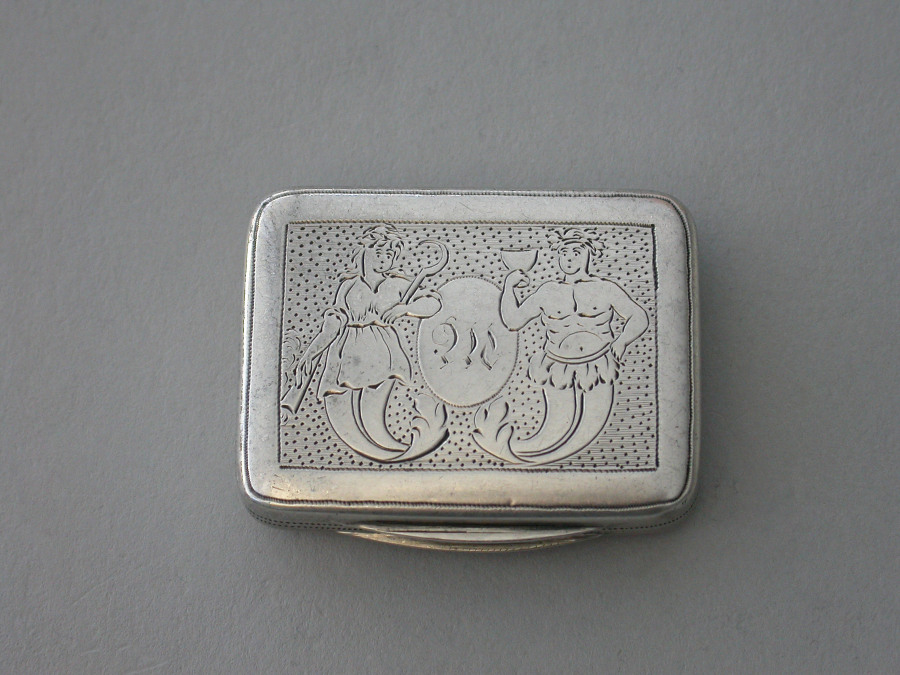
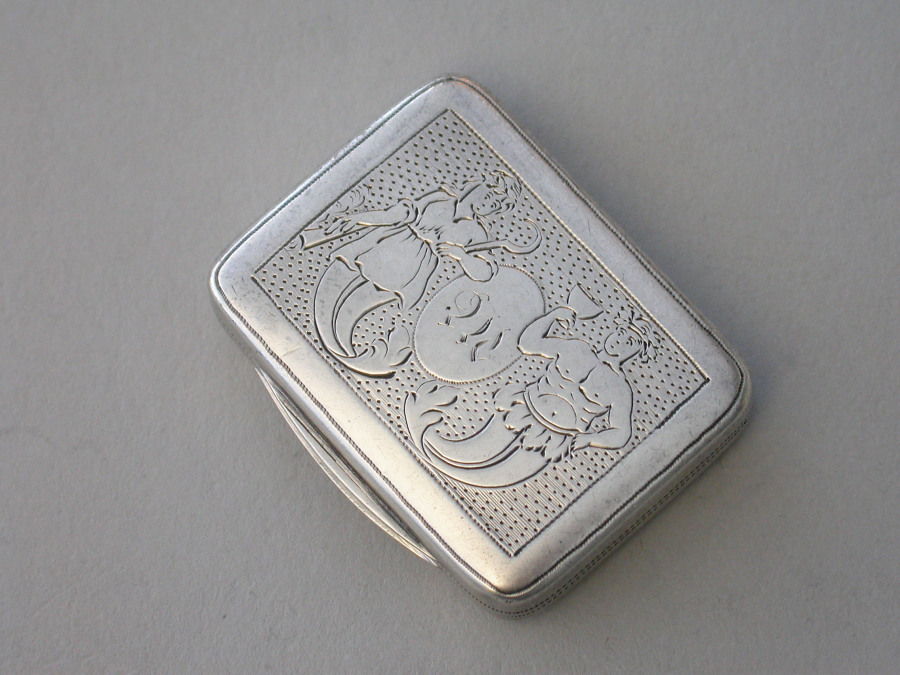
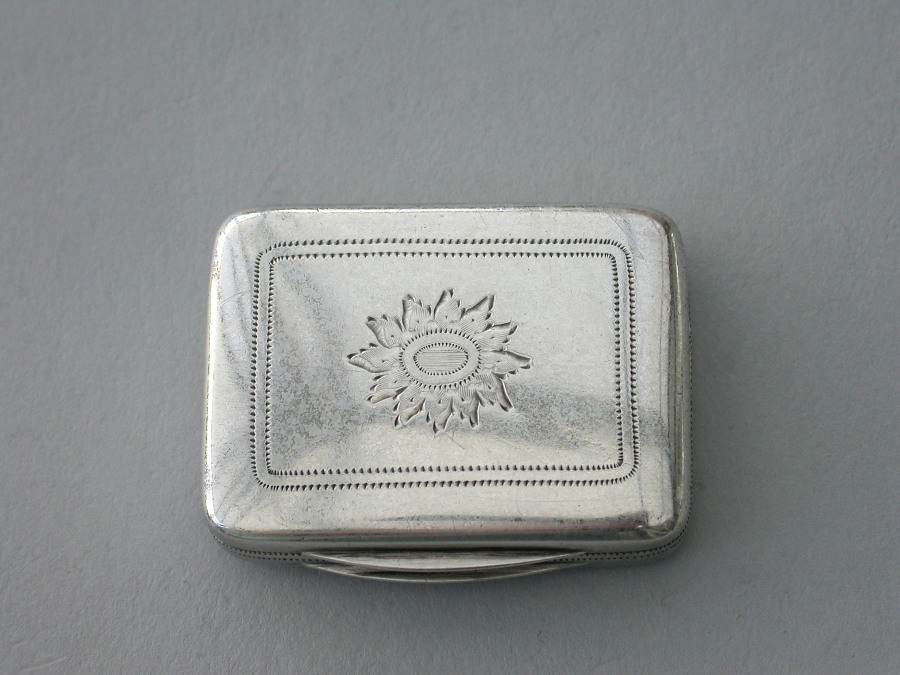
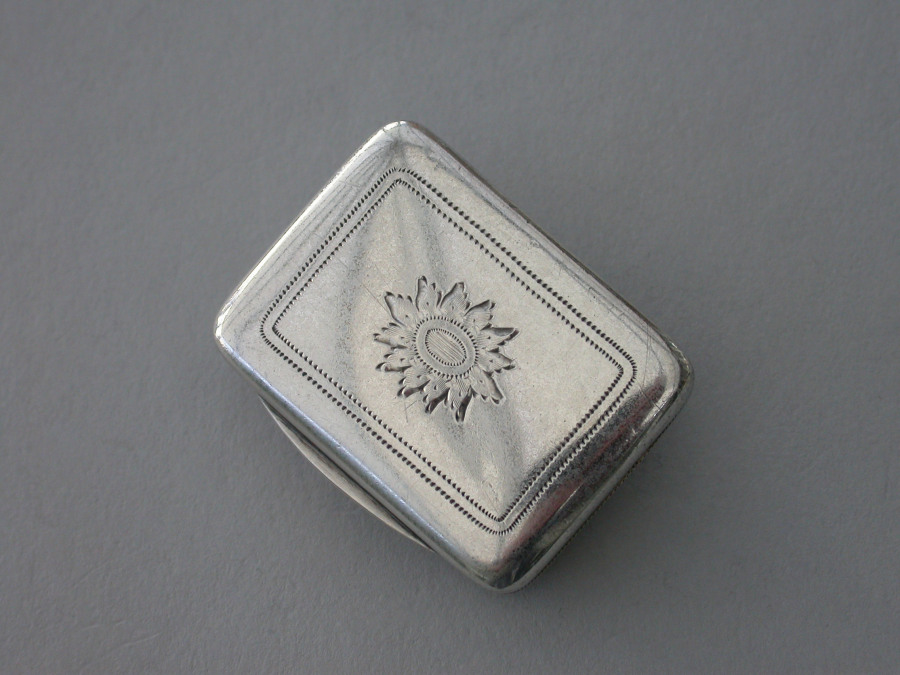
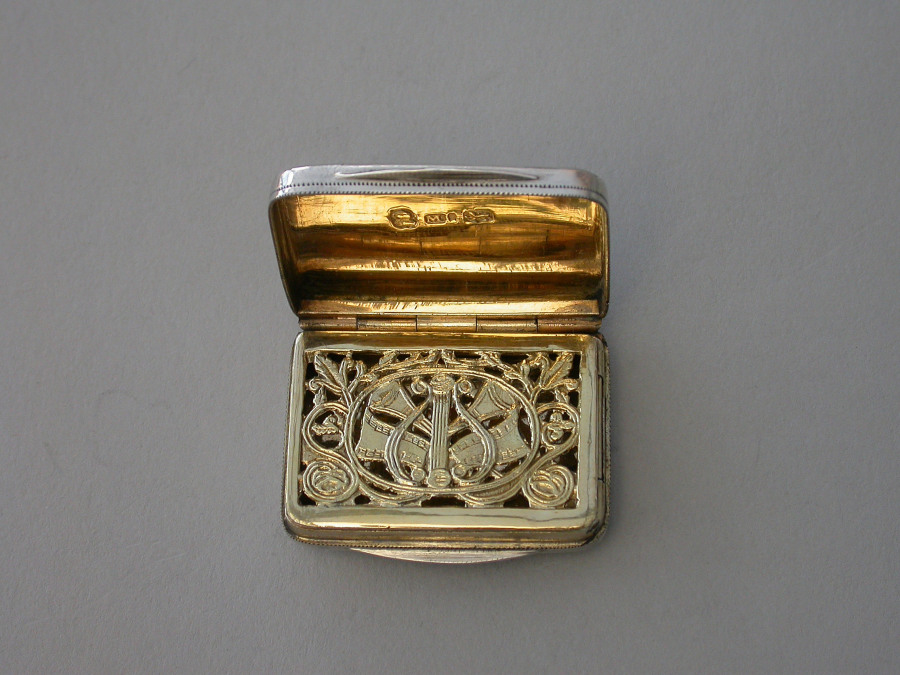
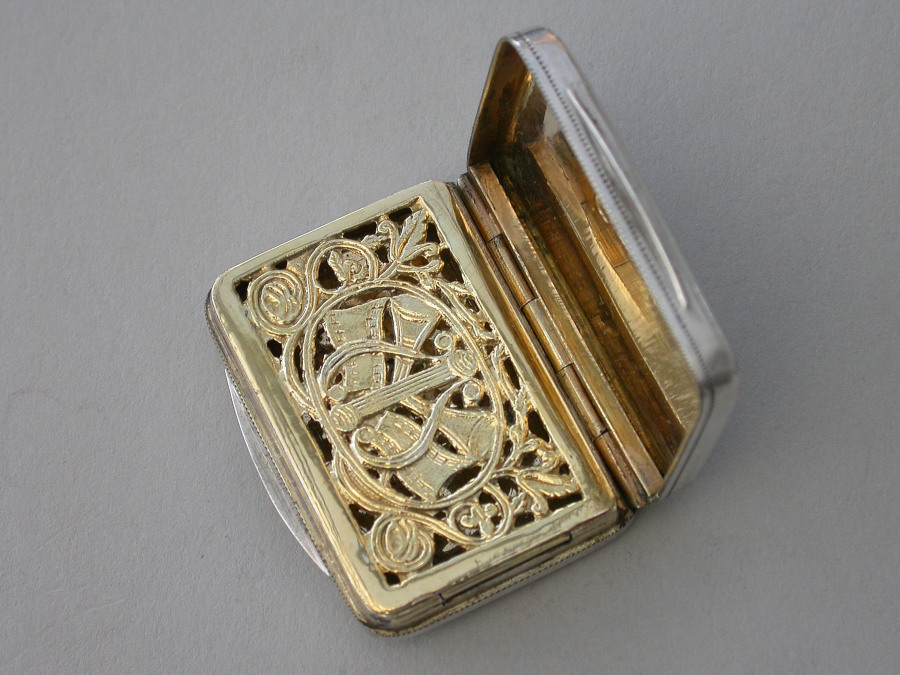
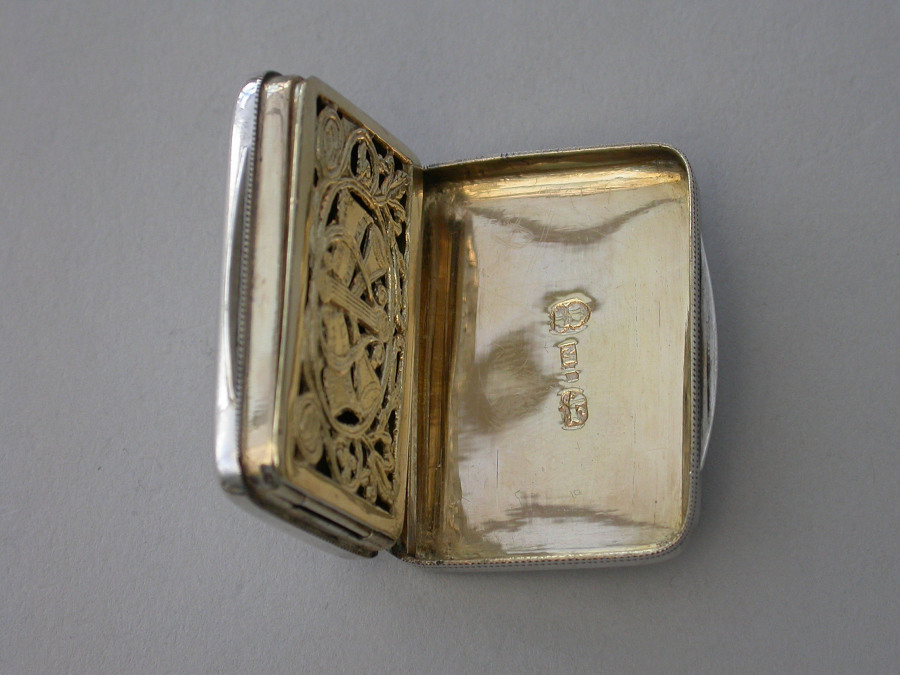
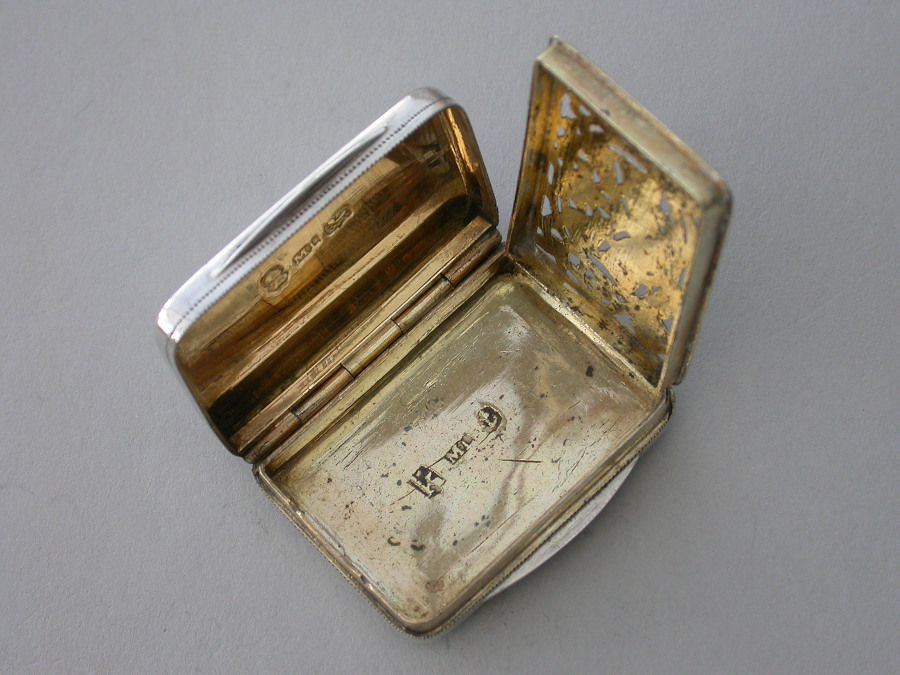
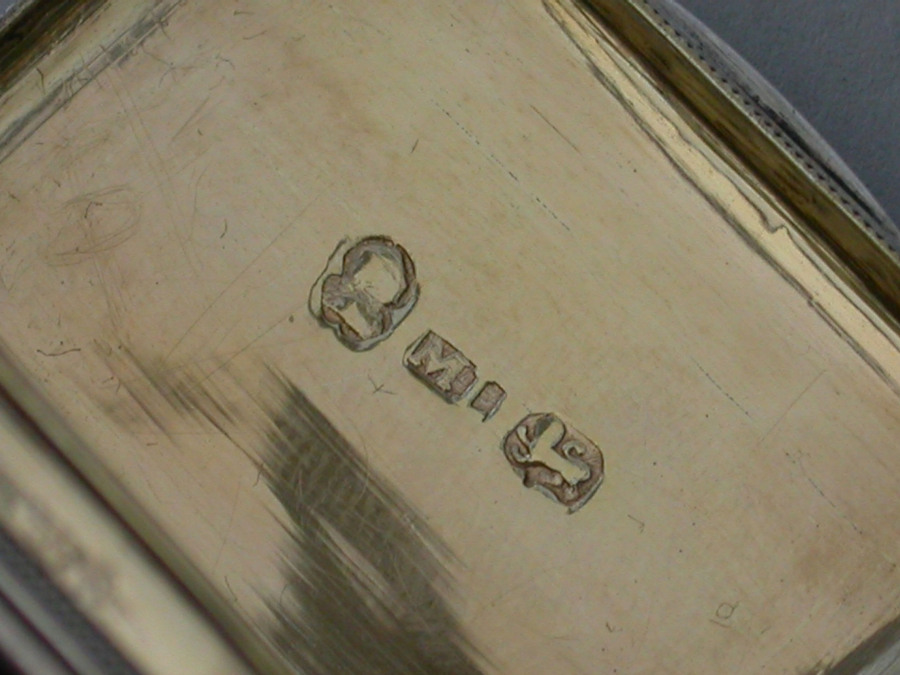
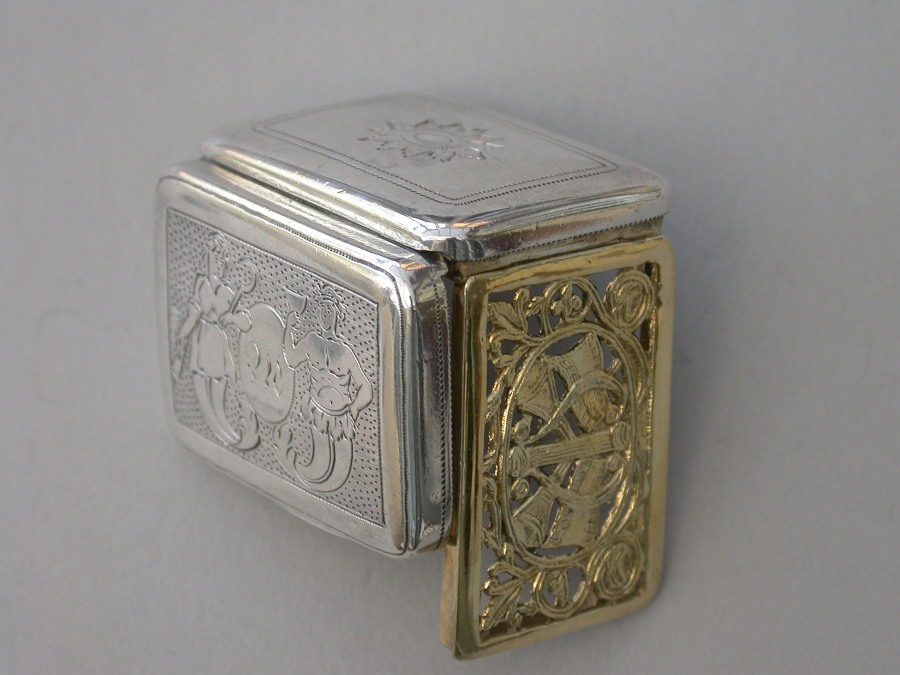
An extremely rare George III silver Vinaigrette of rounded rectangular form, the cover with engraved panel depicting the Greek Gods Demeter and Dionysus in abstract form, either side of an oval cartouche engraved with a stylised letter M, all on a prick-dot engraved background. The silver gilt interior grille pierced with musical instruments including a lyre, two bugles and two sheets of music.
By Matthew Linwood, Birmingham, 1808
Sold - P.O.A.
Condition
In good condition with no damage or repair
Dimensions
H
9 mm
(0.35 inches)
W
37 mm
(1.46 inches)
D
29 mm
(1.14 inches)
Weight
22.00 Grams
(0.71 troy ounces)
Country
England
Stock Code
MSC49
Medium
Silver
Literature
Demeter and Dionysus - ""Mankind's Two Best Friends" Demeter
Greek Goddess of Agriculture, Fertility, Sacred Law and the Harvest
Demeter is the goddess of the harvest and presides over grains and the fertility of the earth. Although she was most often referred to as the goddess of the harvest, she was also goddess of sacred law and the cycle of life and death.
Her virgin daughter Persephone was abducted by the god of the underworld, Hades, and Demeter endlessly searched for her, preoccupied with loss and grief. The seasons halted and living things stopped growing and died. At this point, Zeus had to intervene and send his messenger Hermes to the underworld to bring Persephone back and prevent the extinction of all life on Earth.
Hades agreed to Persephone’s relief but gave her a pomegranate as she left. When she ate the pomegranate seeds, she was bound to him for one third of the year, either the dry Mediterranean summer, when plant life is threatened by drought, or the autumn and winter.
Dionysus
Greek God of Wine & the Grape Harvest
Dionysus was the god of the grape harvest, winemaking and wine, of ritual madness, religious ecstasy and theatre. He may have been worshipped as early as 1500-100BC by Mycenean Greeks according to very old scripts inscribed with his name.
Earlier images and descriptions of Dionysus depict him as a mature male, bearded and robed holding a fennel staff tipped with a pine-cone. However, in later images the god is show to be a beardless, sensuous, naked or semi-naked androgynous youth. He is described in literature as womanly or “man-womanish”.
He was the son of Zeus and the mortal Semele, making Dionysus semi-device or a hero.
